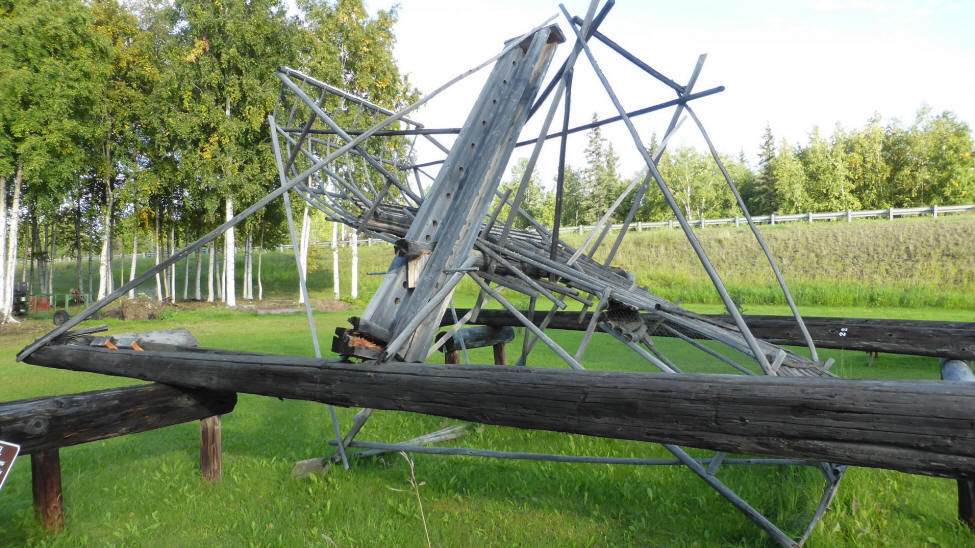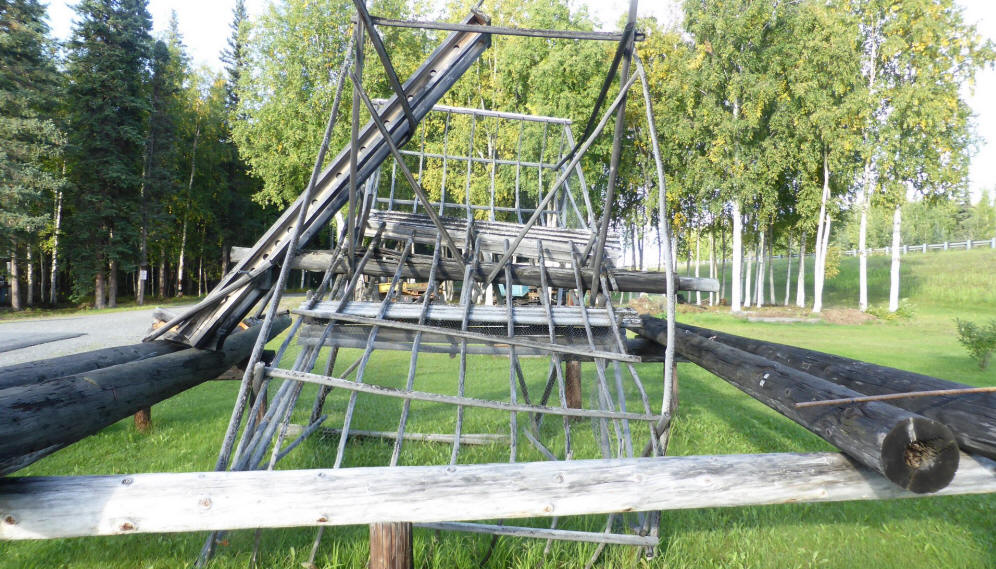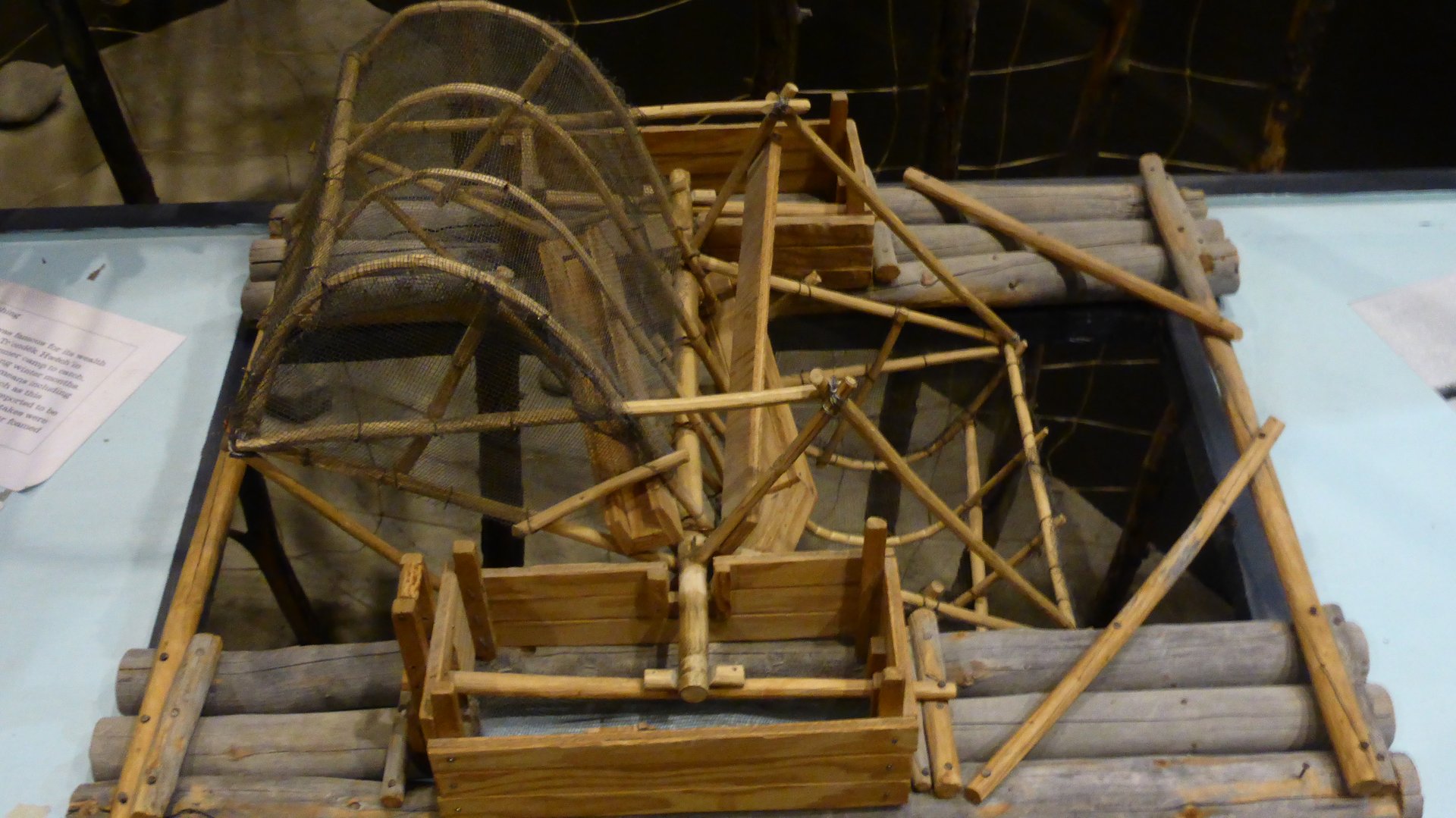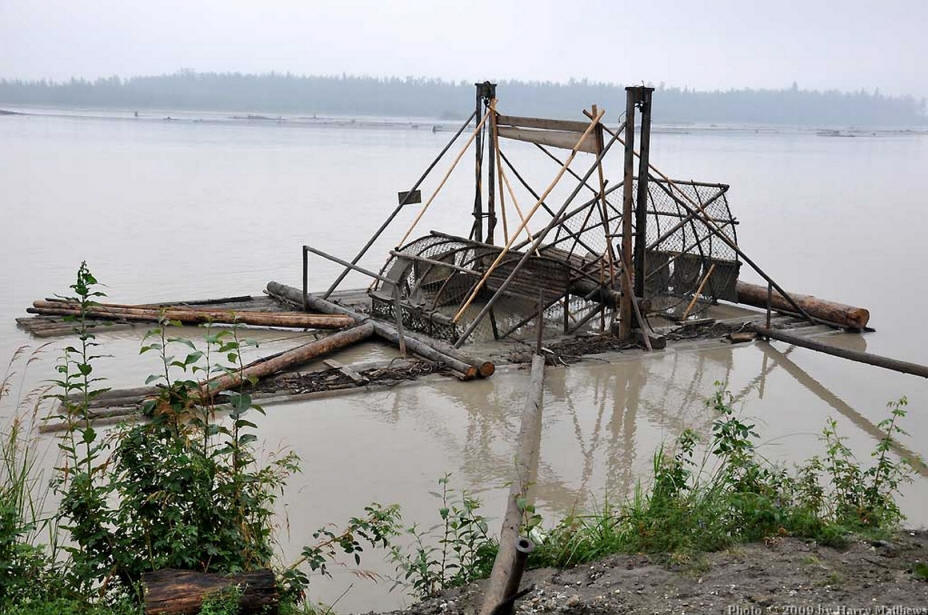|
Water and Wheels in Alaska and the Yukon
Ashok Vaidya
|
|

|
|
At a remote wayside stop on the
road north from Anchorage to Fairbanks in Alaska we
came across this interesting and delicate
construction of timber. It looked as though some
part of it rotated about the axle and there seemed
to be a grid of laths on either side of the cross
pieces. Some form of waterwheel? But what did it
drive and how did it work?
|
|
 |
|
The answer proved the ingenuity
of the local population in these far flung parts –
it was a fish wheel. Designed to sit in a fast
flowing river, the water flow turned the ‘buckets’
of laths, and as they rose out of the stream they
lifted any salmon that were unlucky enough to be
passing upstream at that moment. Not only that,
they were designed to tip the salmon out at the top
of the rotation into a chute that directed them into
a net or holding pen at the side. Ready then for
the fisherman to scoop them up and eat, smoke or
otherwise preserve for the long icy winters ahead.
|
|
We saw a small model of one in
the museum at Dawson City in the Yukon, Canada,
which being more complete allows a clearer
understanding of how it works. |
|

|
|
So a
waterwheel producing energy – not directly
mechanical like our river mills, but directly
chemical in the form of juicy sockeye salmon steaks. |
|
 |
|
At the Chena Indian Village
there is a working example of the fish wheel, and
there are clips on YouTube of them in action:
https://www.youtube.com/watch?v=b5N0okA-Aok
https://www.youtube.com/watch?v=IarZQFsDAiM
|
   |
